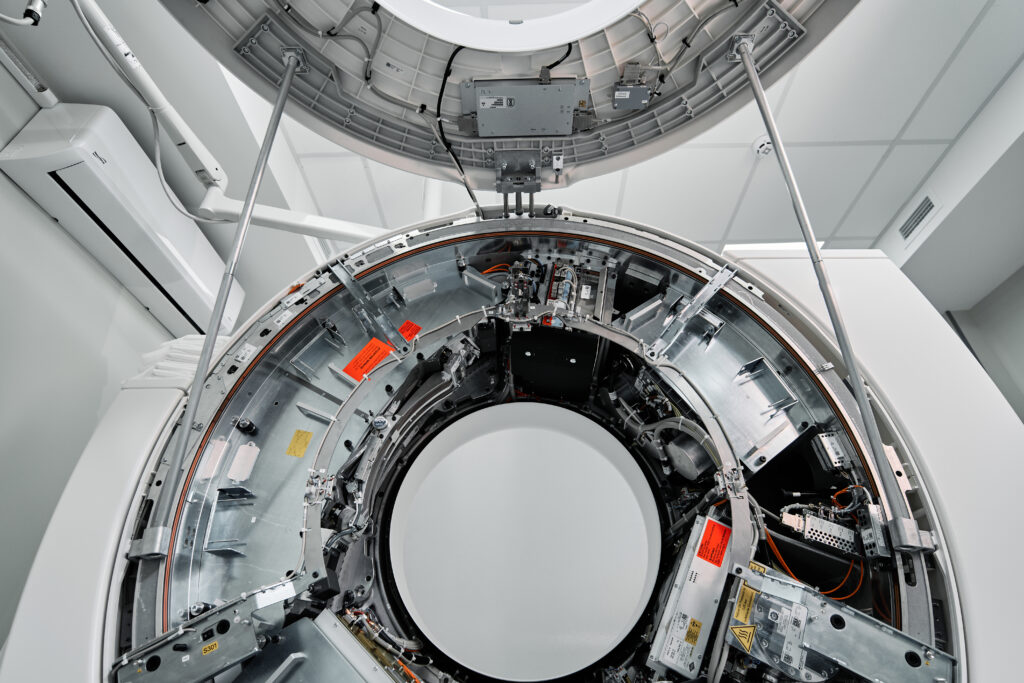Rocket Lab USA Inc. (NASDAQ:RKLB) is one of the most dynamic and fast-growing companies in the global aerospace and defense industry, revolutionizing how the world accesses and utilizes space. Founded in 2006 by New Zealand-born engineer Sir Peter Beck, Rocket Lab has evolved from a visionary startup into a publicly traded space technology leader headquartered in Long Beach, California. The company designs, manufactures, and operates advanced rockets, spacecraft, and satellite components that serve a wide spectrum of clients—including commercial operators, research institutions, and defense agencies. Its mission is simple yet transformative: to make space more accessible and efficient for everyone, driving the next era of innovation beyond Earth’s atmosphere.
From its early beginnings, Rocket Lab aimed to challenge traditional barriers in the aerospace sector. Instead of building massive, costly rockets, the company focused on developing smaller, more agile launch systems capable of rapid and frequent missions. This philosophy gave birth to the Electron rocket, the world’s first orbital-class launch vehicle dedicated exclusively to small satellites. Electron has become the most frequently launched small orbital rocket globally, enabling precise, cost-effective satellite deployment for companies, governments, and space agencies. Each mission represents not only a technical feat but also a testament to Rocket Lab’s engineering excellence and vertical integration, as nearly every component of the rocket—from engines to avionics—is built in-house.
As Rocket Lab matured, it expanded beyond launch services to become a fully integrated space systems company. Its portfolio now includes spacecraft manufacturing, satellite components, and mission operations, allowing clients to access complete end-to-end solutions. The company’s acquisition of SolAero Technologies, a leading producer of high-efficiency solar cells, further strengthened its capabilities in spacecraft power systems. Through this expansion, Rocket Lab has delivered components and systems to more than 1,700 missions across the commercial, defense, and national security sectors. These include contributions to vital space infrastructure, communications networks, and even interplanetary exploration.
In addition to its flagship Electron rocket, Rocket Lab has developed HASTE (Hypersonic Accelerator Suborbital Test Electron), a suborbital variant designed for defense and hypersonic research applications. HASTE supports U.S. and allied government programs by providing a rapid, reliable platform for hypersonic flight testing—an area of growing strategic importance in global defense. The company’s upcoming Neutron rocket, now in development, represents Rocket Lab’s bold next step into the medium-lift market. Neutron is designed to be partially reusable and optimized for constellation deployment, national security missions, and interplanetary exploration. Once operational, it is expected to compete directly with SpaceX’s Falcon 9 and other heavy-lift vehicles, dramatically expanding Rocket Lab’s market presence and revenue potential.
Rocket Lab’s success is also tied to its strong partnerships and growing client base around the world. On October 7, 2025, the company announced a new multi-launch agreement with Japan’s Institute for Q-shu Pioneers of Space, Inc. (iQPS), solidifying its role as the primary launch provider for iQPS’s synthetic aperture radar (SAR) satellite constellation. The deal includes multiple dedicated Electron missions from Rocket Lab Launch Complex 1 in New Zealand, reflecting the company’s growing global reach and reputation for reliability. With more than 20 launches scheduled for 2025 alone, Rocket Lab is scaling its operations to meet the accelerating demand for rapid, responsive access to orbit.
Under the leadership of Sir Peter Beck, Rocket Lab continues to push the boundaries of what’s possible in aerospace technology. Beck’s vision—to make space accessible, reliable, and commercially sustainable—has shaped Rocket Lab into one of the most trusted names in the global space economy. His commitment to innovation and quality has earned Rocket Lab contracts from some of the most demanding organizations in the world, including NASA, the U.S. Space Force, and the National Reconnaissance Office. Beck’s philosophy emphasizes efficiency through vertical integration, allowing Rocket Lab to control every stage of the mission lifecycle—from design and manufacturing to launch and deployment—ensuring superior reliability and customer confidence.
Today, Rocket Lab stands as a cornerstone of the modern space industry, contributing to advancements in Earth observation, communications, defense technology, and scientific exploration. Its vertically integrated business model enables faster turnaround times, reduced costs, and streamlined mission logistics that set it apart from competitors. As humanity’s reliance on space-based systems continues to grow, Rocket Lab’s ability to deliver flexible, dependable, and cost-efficient access to orbit positions it as a key enabler of the new space economy.
Looking ahead, Rocket Lab’s future is filled with transformative potential. With the upcoming debut of the Neutron rocket, expansion of its spacecraft component production, and increasing involvement in defense and national security initiatives, the company is poised to accelerate both its technological and financial growth. As one of the most innovative and vertically integrated aerospace companies of the 21st century, Rocket Lab USA, Inc. is not just launching rockets—it is launching the future of human progress, one mission at a time.
Rocket Lab: Redefining Access to Space from Long Beach to Low Earth Orbit
Rocket Lab USA, Inc. (NASDAQ: RKLB) is a global leader in launch services and space systems headquartered in Long Beach, California. Founded in 2006 by Sir Peter Beck, the company has redefined accessibility to space through its innovative small-lift Electron rocket and its integrated suite of spacecraft technologies. Over the years, Rocket Lab has become a key player in the growing commercial space industry, catering to both private and government clients with dependable, cost-effective, and rapid launch capabilities. The company’s success is anchored in its vertical integration—designing, manufacturing, and launching its own rockets and satellite components—which has allowed it to achieve efficiencies that few in the aerospace sector can match.

CHECK THIS OUT: Gyrodyne (GYRO) Lands $28.74M Deal for 49 Acres in St. James, NAV Jumps 6% and NioCorp (NB)’s $1.14B Elk Creek Project Set to Transform U.S. Critical Minerals Supply.
From Startup Dream to Global Aerospace Powerhouse
What began as a bold vision to democratize access to orbit has evolved into a full-fledged aerospace enterprise. Rocket Lab now operates across multiple domains including launch services, spacecraft manufacturing, satellite components, and national security missions. Its flagship Electron rocket stands as the world’s most frequently launched orbital-class small rocket, completing dozens of successful missions that have deployed payloads for commercial operators, research institutions, and defense agencies alike. Through Electron, Rocket Lab provides both dedicated and rideshare launches that deliver satellites to precise orbits, enabling clients to rapidly deploy and expand their constellations.
Expanding Horizons with HASTE and the Next-Generation Neutron Rocket
Building upon Electron’s success, Rocket Lab developed HASTE (Hypersonic Accelerator Suborbital Test Electron), a dedicated platform for hypersonic testing by the U.S. government and allied nations. This demonstrates Rocket Lab’s adaptability and alignment with defense innovation goals. The company’s next big leap is Neutron, a medium-lift, partially reusable rocket currently in development. Designed for constellation deployment and deep-space missions, Neutron aims to open new markets in national security and commercial exploration—placing Rocket Lab in direct competition with SpaceX’s Falcon 9 and other heavy-lift players.
Vertical Integration: The Engine Behind Rocket Lab’s Growth
Beyond launch vehicles, Rocket Lab’s space systems division has become one of its most valuable assets. The division designs and manufactures high-precision satellite components such as reaction wheels, star trackers, solar panels, and separation systems. These products are already used in a wide array of commercial and government missions. Through its acquisition of SolAero Technologies, Rocket Lab now produces advanced solar cells that power spacecraft across the globe. Its Photon satellite platform has supported interplanetary missions, including NASA’s CAPSTONE project to the Moon, with future missions targeting Mars and Venus.
Growing Demand and Global Partnerships
As of 2025, Rocket Lab continues to ramp up its launch cadence to meet the rapidly rising global demand for small-satellite launches. The company’s Electron rocket is booked for more than 20 launches in a single year, a record pace driven by both commercial clients and government agencies. Recently, Rocket Lab announced a multi-launch deal with Japan’s Institute for Q-shu Pioneers of Space, Inc. (iQPS)—making Rocket Lab the primary launch provider for iQPS’s synthetic aperture radar (SAR) satellite constellation. This partnership underscores Rocket Lab’s growing international reputation for reliability, precision, and responsiveness.
Leadership and Vision: The Peter Beck Legacy
Sir Peter Beck, Rocket Lab’s founder and CEO, remains the driving force behind its remarkable rise. His vision—to make space more accessible through affordability and innovation—has guided the company from its early beginnings in New Zealand to its current global presence. Under his leadership, Rocket Lab has launched missions for NASA, the U.S. Space Force, the National Reconnaissance Office, and dozens of commercial satellite operators worldwide. Beck’s approach emphasizes speed, dependability, and full mission integration, setting Rocket Lab apart as both an engineering pioneer and a trusted strategic partner.
Building the Backbone of the Space Economy
Rocket Lab’s impact extends far beyond its launchpads. The company has contributed to more than 1,700 missions through its spacecraft components, launch services, and engineering partnerships. Its vertically integrated model enables customers to access complete end-to-end solutions—from design and build to precise orbital deployment—all under one roof. This seamless service model streamlines logistics, lowers costs, and shortens lead times, making Rocket Lab an essential infrastructure provider in the emerging space economy.
A Promising Trajectory Toward the Future of Space
Looking forward, Rocket Lab stands at the frontier of the modern aerospace revolution. The debut of the Neutron rocket, expansion into hypersonic systems, and deepening involvement in defense and intelligence programs all position the company for exponential growth. As governments, corporations, and research institutions race to expand their orbital capabilities, Rocket Lab’s blend of innovation, reliability, and vertical integration cements its status as one of the most promising players in the global space sector. More than just launching rockets, Rocket Lab is launching the future—one mission at a time.
READ ALSO: CEL-SCI (CVM) Stock Could Explode After Saudi Breakthrough Deal and Ondas Holdings (ONDS) Lands $2.7M Defense Order.






